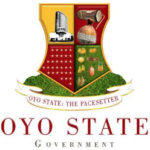The Raw Materials Research and Development Council (RMRDC) has signed an implementation agreement with the Tropics Derma Research and Training Institute.
This is a follow-up on the Memorandum of Understanding (MoU) earlier signed between the Minister of Science Technology, and Innovation, Uche Nnaji, and the founder of TDRTI, Edith Gibson, earlier this month.
The Director General, RMRDC, Prof. Martin Ike-Muonso speaking after signing the agreement at the council’s headquarters in Abuja on Friday said, the partnership with TDRTI, will immensely contribute to the nation’s economy.
“Through this partnership, we aim to leverage the incredible potential of Nigeria’s raw materials to develop sustainable and scientifically backed skincare solutions.
“We are particularly excited about leveraging the Al-powered derma analysis setup developed by the Tropical Derma Research Institute, which will provide skin evaluations and personalised treatment plans, offering users healthy skincare options without resorting to dangerous bleaching products.
“Our shared commitment to innovation and consumer safety will allow us to create products that not only cater to our tropical needs but also set a high standard of quality and safety across the industry,” Ike-Muonso stated.
He said the council also recognise that the challenge before the organisation is not just about product development; it is about transforming the entire skincare landscape in Nigeria.
He said, “That is why we are working closely with the Ministry of Innovation and other relevant stakeholders to develop and implement a comprehensive national policy for tropical skincare. Such a policy will ensure the highest standards are maintained, promote and valorise the use of our local raw materials, and ultimately protect the health and well-being of all Nigerians.
“What we are embarking on today is truly transformative. It is about setting new benchmarks for quality, safety, and sustainability. It is about ensuring that the people of Nigeria have access to skincare products that are both effective and safe. And it is about fostering economic growth by creating opportunities for local industries and empowering our communities.
“This collaboration will include training local professionals such as beauticians, estheticians, medical professionals, and pharmacists-in tropical dermatology and cosmeceutical sciences, thereby raising the skill level across the industry and ensuring the safe treatment of consumers.”
He added that the nation’s tropical climate presents unique challenges for skincare, and for too long, these challenges have been met with inadequate and sometimes dangerous products.
He noted that the proliferation of unregulated skin-bleaching products, often containing harmful carcinogenic substances, poses a significant health risk to Nigerian population, as many of these products contain dangerous ingredients such as hydroquinone and steroids, leading to irreversible skin damage, hormonal imbalances, and other serious health issues.
Founder of TDRTI, Edith Gibson on the agreement and its benefits said, “It is a vision rooted in a profound understanding of the unique skincare needs of our diverse population, particularly for us in tropical Africa. For too long, the skincare industry has overlooked a crucial segment of our society, leaving many feeling frustrated and dissatisfied with their own skin.
“More than ten years ago, as a professional advanced medical aesthetician and researcher, | recognised a glaring problem in our industry: the absence of products crafted specifically for the needs of people in the tropics. Many women in our communities felt that their skin was the problem, struggling with products that simply did not meet their needs. This was not just a matter of personal frustration; it was an issue that required scientific inquiry and thoughtful solutions.”
She stated that the collaboration is not merely about product development; but also a commitment to public health and safety.
She said, “Our first target? The dangerous practice of skin bleaching, which has long posed threats to the health and self-esteem of many in our communities. But our ultimate goal is broader: to promote holistic skin health for all.
“As part of this agreement, TDRTI will equip beauty entrepreneurs and health workers with the skills they need to deliver effective, science-based treatments. This initiative will not only empower professionals in our industry but also stimulate our economy, creating jobs and fostering innovation.”
 Join Daily Trust WhatsApp Community For Quick Access To News and Happenings Around You.
Join Daily Trust WhatsApp Community For Quick Access To News and Happenings Around You.


